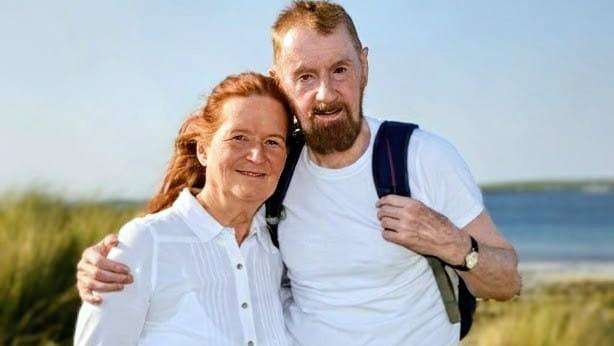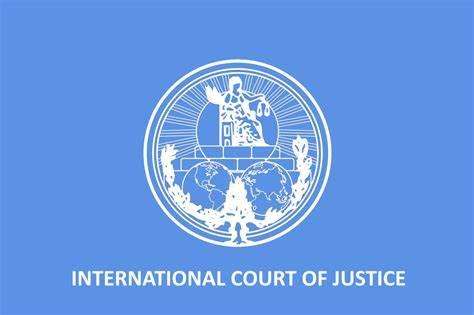Though Bangladesh is the most affected country by the influx of Rohingya refugees since 2017, Dhaka has not submitted a petition to become a party in the Gambia vs Myanmar Case at the International Criminal of Justice (ICJ), sources said.
Sources said that the last date of becoming a party in the Gambia vs Myanmar Case at the International Criminal of Justice (ICJ) is ending on Monday, December 30, 2024, sources said.
Dhaka can argue strongly on the Rohingya issue if Bangladesh joins the International Criminal of Justice (ICJ) and Bangladesh's silence in this regard is difficult to understand, sources said.
Even counties like the Maldives, France, the UK, the Netherlands, Germany, Denmark, Canada, Slovenia, Belgium Republic of Congo, Ireland---not directly affected by the by the influx of Rohingya refugees—have joined the case, sources in Dhaka, the Hague and Berlin said.
Meanwhile, despite hosting over a million Rohingya refugees for more than seven years, Bangladesh has conspicuously remained silent on the possibility of intervening in the ICJ proceedings, raising critical questions about its commitment to international justice and the future resolution of the Rohingya crisis, sources said.
The Gambia's decision to institute proceedings against Myanmar regarding the latter's breach of several obligations under the Genocide Convention brought momentum to ICJ history. In particular, the Gambia, despite being a non-affected state situated 11,570 kilometres away from Myanmar, successfully filed the proceedings based on its community interest in preventing and punishing genocide.
Though ICJ proceedings are limited to the disputant states, the interest of third states are protected by Article 59 of the ICJ statute. The ICJ statute facilitates the procedure of intervention, allowing any third state to participate in such a proceeding to safeguard its legal interest or promote its political interest. Two categories of intervention are available under the ICJ statute: (1) Article 62, which protects "an interest of a legal nature"; and (2) Article 63, which implicates the "construction of a treaty."
In the aftermath of The Gambia's institution of proceedings, some states expressed their interest in intervening in the case. Eventually, seven states—namely Canada, Denmark, France, Germany, the Netherlands, UK, and the Maldives—filed a joint declaration of intervention, and the Maldives submitted a sole declaration of intervention on November 15, 2023. On July 3, 2024, the ICJ issued the Order on Admissibility of Intervention, declaring the admissibility of both declarations. Interestingly, both the joint declaration of the seven states and the declaration of the Maldives are related to Article 63, i.e. the construction and interpretation of the Genocide Convention.
A Bangladesh diplomat while talking to this correspondent said that Bangladesh needs to prove its seriousness before the multi-stakeholder conference to be organised under the auspices of the UN.
Bangladesh needs to come out of the policy of appeasement when the country is seeking justice for the victims of atrocity at home, said a Bangladesh diplomat.
Meanwhile, the Arakan Army (AA) has launched an aggressive campaign to seize control of Maungdaw, Myanmar, displacing tens of thousands of Rohingya under the pretext of civilian protection. Forced evacuations have caused shortages of food, clean water and healthcare.
The crisis escalated in June 2024 when the Arakan Army (AA) advanced into a densely populated Rohingya town near Maungdaw, forcing thousands to flee. On June 16, the AA ordered the evacuation of the town. This evacuation order coincided with the Eid ul-Adha festival, caused panic among Rohingya Muslim residents. AA forces launched drone and artillery attacks on residential areas, targeting neighborhoods such as Myoma Kanyintan, where the Rohingya Solidarity Organisation (RSO) was conscripting Rohingya men. AA bombs destroyed homes and injured residents sheltering in mosques and concrete buildings.
On August 5 AA drone and artillery fire targeted civilians gathered on the Naf River shore, to cross into Bangladesh. Eyewitnesses reported attacks from AA-controlled positions in Shwezar, Maung Ni, and Pan Taw Pyin, which killed hundreds of Rohingya civilians. Refugees described scores of bodies strewn along the shore. The AA attacks were likely triggered by the gathering of armed RSO troops at a nearby dock.
Following the August 5 massacre, AA forces began systematically evacuating the remaining Rohingya population from Maungdaw town. Civilians were forcibly relocated to AA-controlled areas, including the derelict Hla Poe Kaung transit camp and to depopulated villages such as Pan Taw Pyin. Evacuees faced severe lack of shelter, food, and medical care. Many were subjected to forced conscription, prompting further displacement. Refugees described perilous escapes across the Naf River to Bangladesh. They often fell victim to extortion by armed groups, including the RSO and AA, who stole valuables and abused women.
The AA’s actions mirror the Myanmar military’s clearance operations of 2017, which were joined by Rakhine militias. The 2017 massacres displaced over 800,000 Rohingya. By forcibly evacuating the remaining Rohingya enclaves in Maungdaw, the AA has continued the systematic erasure of the Rohingya presence in Rakhine State.
Refugee testimonies highlight the diminished influence of armed Rohingya resistance groups, contrary to AA claims of their pervasive threat. The RSO and SAC have largely replaced the Arakan Rohingya Salvation Army (ARSA) in Maungdaw.
The Rohingya community in Maungdaw stands at the brink of annihilation. Without immediate and decisive intervention, attacks by the Myanmar Army and the Arakan Army will lead to the destruction of the remaining Rohingyas in Myanmar.



_6.jpg)
_5.jpg)



.svg)
